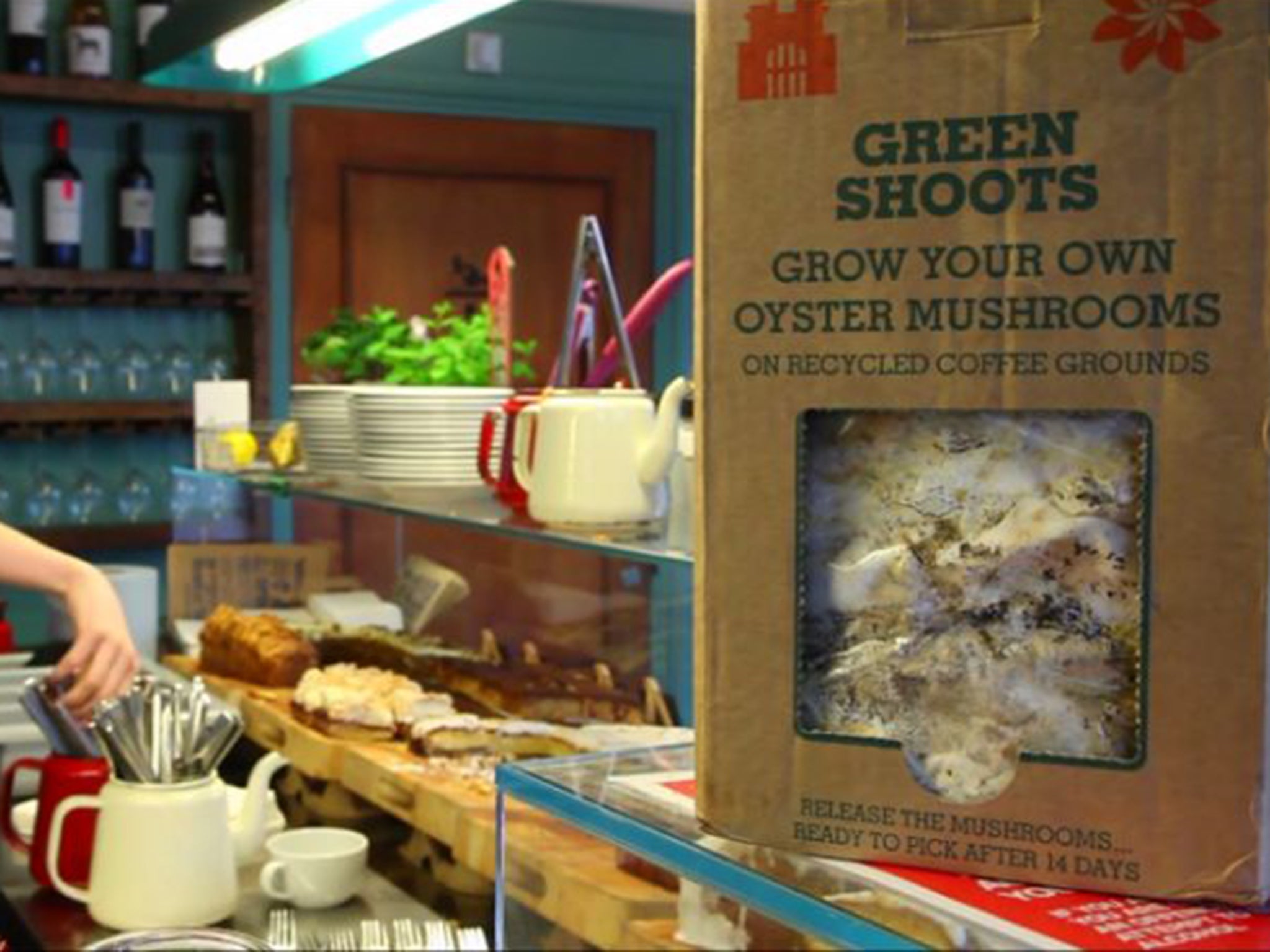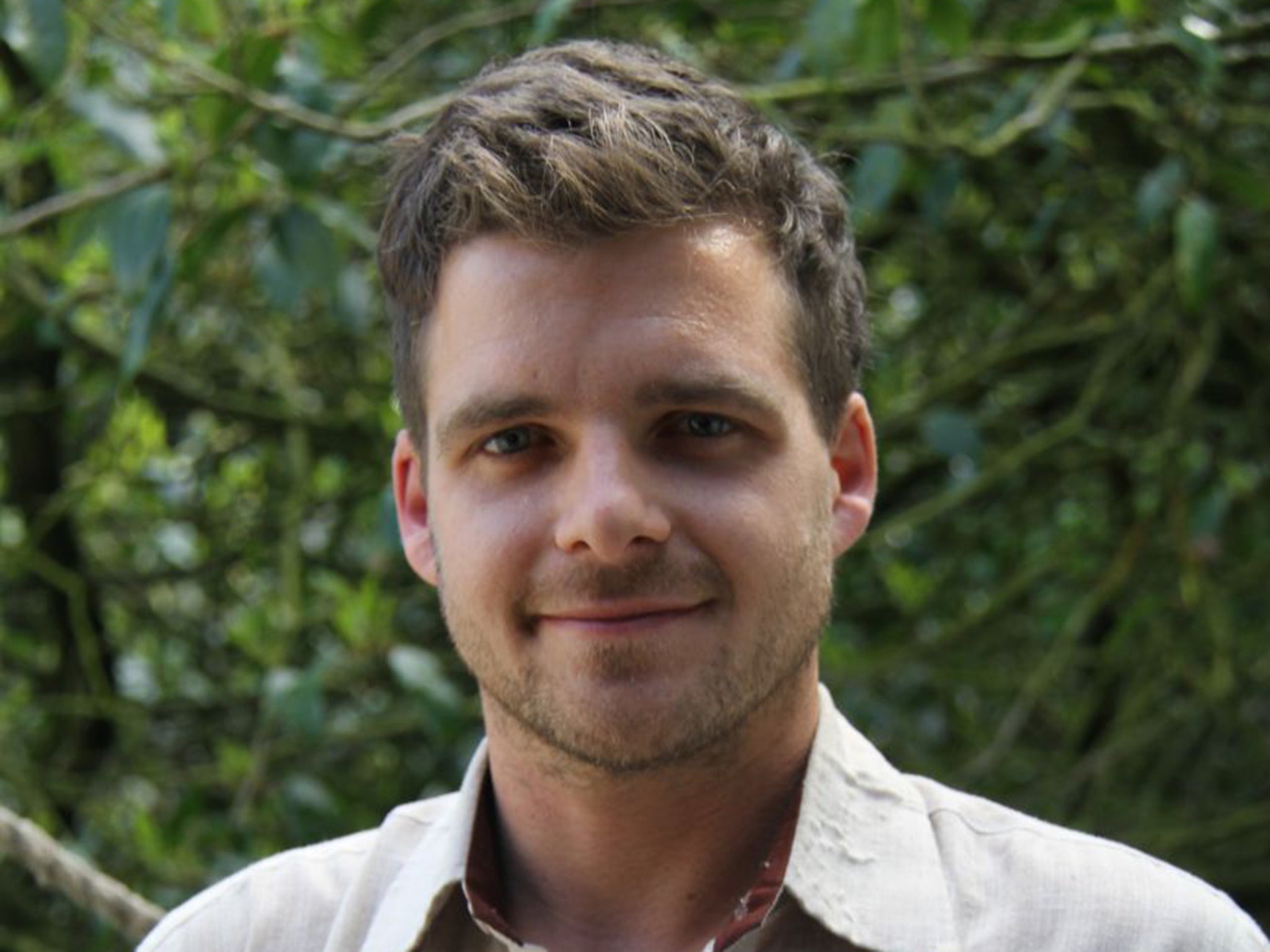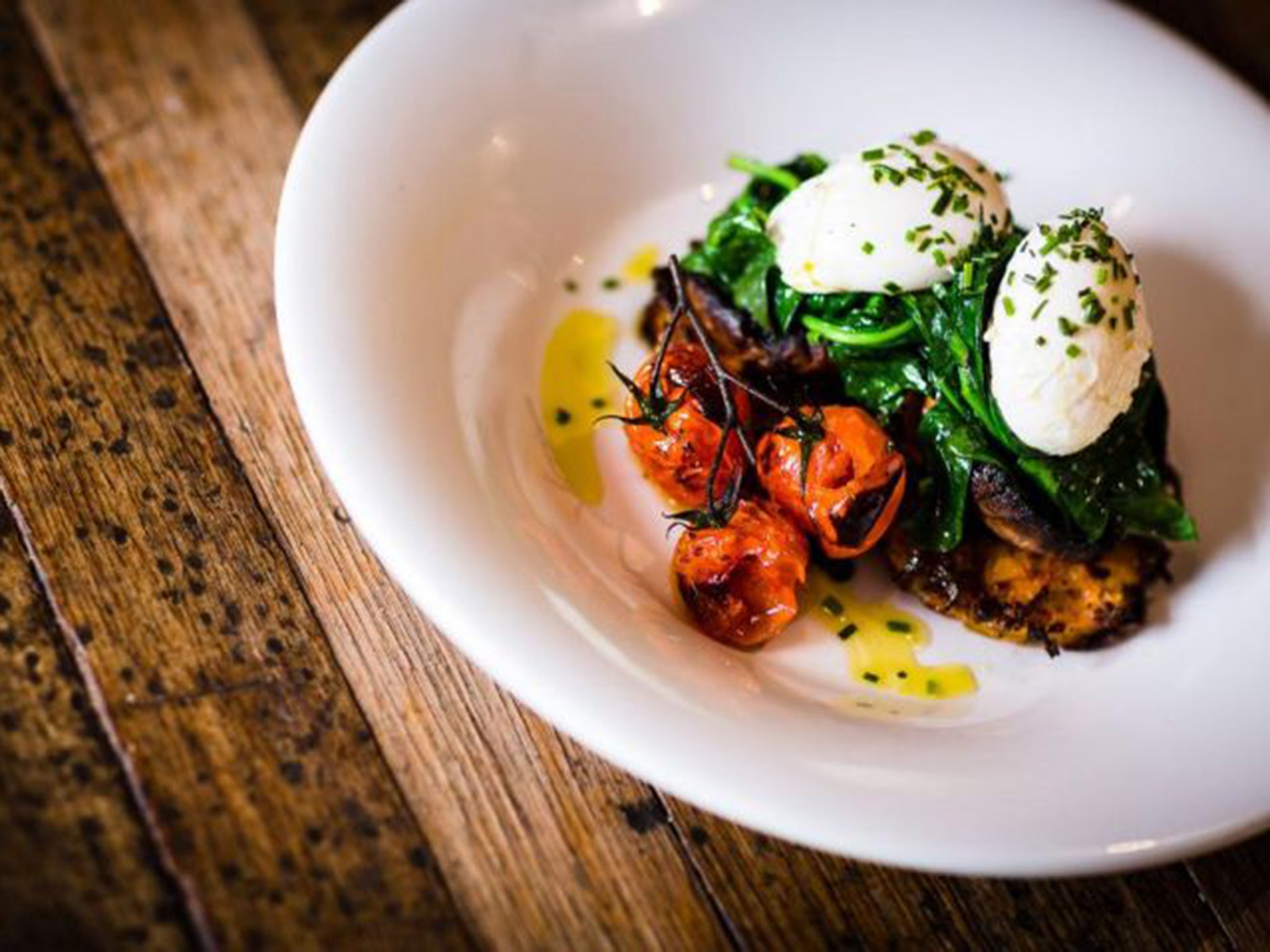Sustainable Restaurant Association wants clear consciences as well as clean plates when it comes to food
It now has more than 4,000 members across the UK, ranging from local cafés to Michelin-starred establishments

Your support helps us to tell the story
From reproductive rights to climate change to Big Tech, The Independent is on the ground when the story is developing. Whether it's investigating the financials of Elon Musk's pro-Trump PAC or producing our latest documentary, 'The A Word', which shines a light on the American women fighting for reproductive rights, we know how important it is to parse out the facts from the messaging.
At such a critical moment in US history, we need reporters on the ground. Your donation allows us to keep sending journalists to speak to both sides of the story.
The Independent is trusted by Americans across the entire political spectrum. And unlike many other quality news outlets, we choose not to lock Americans out of our reporting and analysis with paywalls. We believe quality journalism should be available to everyone, paid for by those who can afford it.
Your support makes all the difference.Today’s ethical diners are no longer content with just filling themselves up. They also want to feel they are putting something back into the community, and not wasting too much of the planet’s precious resources.
That’s why the Sustainable Restaurant Association (SRA) now has more than 4,000 members across the UK, ranging from local cafés to Michelin-starred establishments.
The SRA rates them on three key areas – sourcing, environment and society. In the third in our series of articles about the SRA, we look at each area in more detail.
Sourcing
In the wake of the horsemeat scandal and a number of high-profile restaurants being hit by food poisoning, the provenance of food remains a hot topic. The SRA encourages its members to use local and seasonal produce, to have a sustainable seafood policy, bypassing any “fish to avoid”, and to consider animal welfare in sourcing dairy and meat produce.
Japanese chain Feng Sushi gets its rice from a farm near Turin, in north Italy, which switched from producing risotto rice to sushi grade rice following the European sushi boom. Its founder, Silla Bjerrum, says that it had been increasingly difficult to source from Vietnam “and you don’t want to import rice from a country that needs it”. Feng Sushi’s menu is made up from sustainable fish and she recently introduced herring from a Marine Stewardship Council certified fishery in Hastings.

The Boston Tea Party, a chain of 15 cafés in Bristol, Bath and the Midlands, gives all its coffee grounds to the social enterprise Green Shoots, which takes them to Dartmoor prison, where prisoners use them to grow oyster mushrooms. The project aims to help rehabilitate inmates while reducing waste. Since November, the BTP chain has been buying the mushrooms and serving them for brunch.
Environment
Water saving, waste management, energy efficiency and supply chain all come under the environment umbrella at the SRA.
The Bristol Tapas restaurant Poco aims to produce zero waste – it’s currently 95 per cent there. “We do this by recycling and composting everything we can,” says owner and chef Tom Hunt, author of The Natural Cook. Hunt worked with one supplier to change the packaging to recycled. “You can make a difference just by not throwing stuff in the bin,” says Hunt. “It’s rewarding and it makes sense.”
The Lancaster, a large hotel on the edge of Hyde Park, London installed bee hives on the roof in 2009 as one of its environmental-friendly initiatives. Now, there are five colonies of bees on the roof with up to 250,000 bees in the summer months. Last year, 60kg of honey were taken from the hives to be served at the hotel and given to guests. In one of its restaurants it has a 100-mile cheese plate – all the cheese comes from within 100 miles of the hotel.
Society
Diners care about how staff are treated and what impact restaurants make on the local community, according to SRA research. Some of the ways restaurants get involved include running cooking classes for local children or raising money for charity. Promoting healthy eating and responsible marketing also come under the Society banner.

When the kitchen at Wark First, a small primary school in the village of Wark, Northumberland, was closed due to poor take-up, parents turned to Battlesteads, a local hotel: it has now been making dinners for the children for more than two years. Owner Richard Slade says the meals have been so popular that take-up has risen from 30 to 90 per cent. “It’s been a great success,” he says. It’s not just fish and chips and sausages and mash; there’s also teriyaki salmon and noodles, and coq au vin.
Lima-born Martin Morales is the founder of Peruvian restaurants Ceviche and Andina in London. The restaurants support Soho charity House of St Barnabas, which helps find employment for homeless people and employs two members of staff through the charity. It also works extensively with Amantani, a charity which provides boarding houses for Peruvian children from Quechua to make it easier for them to get an education.
Great taste
This is your chance to get involved with the Sustainable Restaurant Awards, in partnership with The Independent on Sunday. For the People’s Favourite category we want you to tell us about the restaurant that leaves you with a full stomach, a happy heart and a great taste in your mouth. By nominating, you’ll be in with a chance of winning two tickets for the awards ceremony on 23 February in London, plus transport, and a night at The Zetter, a luxury hotel and a Three Star SRA member. T&Cs apply. For more details and to make a nomination, visit thesra.org/peoplesfave/
Join our commenting forum
Join thought-provoking conversations, follow other Independent readers and see their replies
Comments